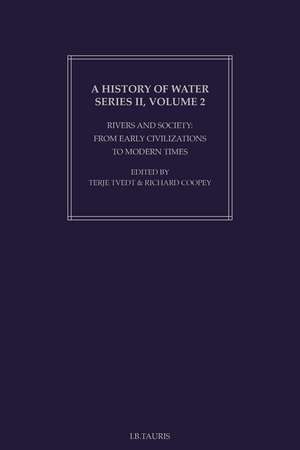History of Water, A, Series II, Volume 2: Rivers and Society: From Early Civilizations to Modern Times
Autor Terje Tvedt, Richard Coopeyen Limba Engleză Hardback – 13 oct 2010
Preț: 782.36 lei
Preț vechi: 1117.96 lei
-30% Nou
149.75€ • 162.72$ • 125.87£
Carte tipărită la comandă
Livrare economică 21 aprilie-05 mai
Specificații
ISBN-10: 1848853505
Pagini: 552
Ilustrații: 97 b/w integrated & 10 figures
Dimensiuni: 156 x 234 x 46 mm
Greutate: 1 kg
Editura: Bloomsbury Publishing
Colecția I.B.Tauris
Locul publicării:London, United Kingdom
Notă biografică
Terje Tvedt is Professor of Geography at the University of Bergen and Professor of Political Science at the University of Oslo. He is the author of The River Nile in the Age of the British and has co-directed and written two successful television documentaries on water. Richard Coopey is with the Department of History at the University of Aberystwyth. He is a Fellow of the Royal Historical Society and the Royal Society of Arts.
Cuprins
Descriere
"Rivers and Society" explores the ways in which human/river relations have shaped important historical transformation processes. With examples ranging from explorations of classical agrarian civilizations such as the Indus, Angkor and Maya, to analyses of the role of water in the modernization process of countries such as Spain, Britain and Japan, the international contributors shed new light on the ways in which the key relationship between humans and water has given rise to new forms of social organization, new technologies and economic activities
